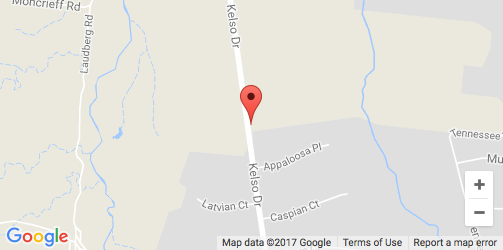|
Lawn grubs is a collective term applied to a group of pests, including army worms, black beetle larvae, web worms and pasture grubs. Lawn grubs hatch from eggs that have been laid by beetles / moths just under the surface of your lawn. Once they have hatched, the grubs live in the soil eating the roots or leaves of the grass and organic matter in the soil until they become beetles / moths themselves.
It is widely said on the internet that the easiest way to tell if you have lawn grubs is by the irregular brown patches throughout the lawn. Increasingly, “it’s lawn grubs” seems to be the popular rapid response answer that is fired back in conjunction with a quick-fix insecticide solution for many “what is wrong with my lawn” questions, regardless of whether it is shared with friends around the backyard bbq or within an online group. This is somewhat unfortunate because sometimes the recommended product can often be applied two or three extra times before either the “damn grubs” (which is now actually the overuse of insecticide) has wrecked the lawn (far more that the grubs ever would have) or the actual real cause has been established. With Townsville at different times of the year having some of the most difficult growing conditions on the Australian coast, it is very important to realise that irregular brown patches in the lawn are more likely to be caused by:
Without giving it much thought, it can be our own ingrained distaste for insects that can have us rushing to detonate the backyard when in fact, there are lots of good bugs out there too. Sadly, insecticides do not discriminate and will annihilate beneficial insects and microbes living in your lawn as well. Excessive use of chemicals can leave your soil barren. Beneficial insects reduce the number of unwanted pests, pollinate plants, improve the soil ecosystem, eat thatch and enhance plant growth. Microbes (also known as microorganisms), whilst they might be too small to be seen by the naked eye, are a critical component of healthy soil. Microbes break down soil’s organic matter (thatch) into a form that is useful for plants. Microbial activity causes important nutrients in the lawn to be released. Again, there are good and bad microbes. Good microbes help to suppress the bad microbes from causing problems in your lawn. SO, WHAT EXACTLY ARE WE TRYING TO SAY? Even if there are lawn grubs present, you may not need treatment. We recommend that the best approach may be being prepared to wait a little longer and see. If you have one of the best lawns in the street, your lawn will be attractive to insects because it is the most fertile and full of nutrients. That said, a healthy lawn can withstand some grubs without any action whatsoever. You may in fact save yourself a lot of money and heartache as the lawn grubs may complete their life cycle quickly with the lawn recovering as seasonal conditions change or with a little extra care (fertiliser and appropriate seasonal watering). If you are concerned about lawn grubs, assess and monitor the situation properly yourself:
Granted more than 20 grubs per square metre in an already stressed lawn and you will likely require treatment. Sometimes trusting in nature will help you work things out…naturally, with the best indication that it may be grubs is that there is an increased number of birds gathering on the grass. Beauty is that these birds are doing you a favour and having a great (chemical free) feed. Another tact, if available to you, is letting chickens have free rein on your lawn for a bit. It is worth bearing in mind that if you go to a store to ask for advice, they will want to sell you something (or anything) to fix it. That’s how they make money after all!! Just a new lawn? It is possible that having a fresh new lawn is like you have put up a ** flashing ** sign to attract lawn grubs. It is recommended that you wait until at least six weeks for the turf to be more established before spraying chemicals of any kind. By this time, all the lawn grubs may have grown into beetles/moths and moved on anyway. Fertilising your lawn to encourage healthy new growth may well be the best form of treatment. On a personal note, Lachlan has never seen a lawn die from lawn grubs in 32 years of working with turf in Townsville. Chances are, if you have a lawn problem in Townsville, it is most likely not lawn grubs. Comments are closed.
|
AuthorWrite something about yourself. No need to be fancy, just an overview. Archives
July 2022
Categories
All
|


 RSS Feed
RSS Feed
